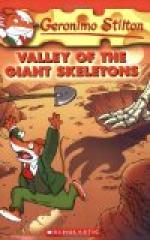“The city council has already granted the N.C.O. a temporary franchise,” he confessed.
Pennington sprang furiously to his feet. “Dammit.” he snarled, “why did you do that without consulting me?”
“Didn’t know you were remotely interested.” Now that the ice was broken, Poundstone felt relieved and was prepared to defend his act vigorously. “And we did not commit ourselves irrevocably,” he continued. “The temporary franchise will expire in twenty-eight days —and in that short time the N.C.O. cannot even get started.”
“Have you any understanding as to an extension of that temporary franchise, in case the N.C.O. desires it?”
“Well, yes—not in writing, however. I gave Ogilvy to understand that if he was not ready in thirty days, an extension could readily be arranged.”
“Any witnesses?”
“I am not such a fool, sir,” Poundstone declared with asperity. “I had a notion—I might as well admit it—that you would have serious objection to having your tracks cut by a jump-crossing at B and Water streets.” And for no reason in life except to justify himself and inculcate in Pennington an impression that the latter was dealing with a crafty and far-seeing mayor, Poundstone smiled boldly and knowingly. “I repeat,” he said, “that I did not put it in writing.” He leaned back nonchalantly and blew smoke at the ceiling.
“You oily rascal!” Pennington soliloquized. “You’re a smarter man than I thought. You’re trying to play both ends against the middle.” He recalled the report of his private detective and the incident of Ogilvy’s visit to young Henry Poundstone’s office with a small leather bag; he was more than ever convinced that this bag had contained the bribe, in gold coin, which had been productive of that temporary franchise and the verbal understanding for its possible extension.
“Ogilvy did business with you through your son Henry,” he challenged. Poundstone started violently. “How much did Henry get out of it?” Pennington continued brutally.
“Two hundred and fifty dollars retainer, and not a cent more,” Poundstone protested virtuously—and truthfully.
“You’re not so good a business man as I gave you credit for being,” the Colonel retorted mirthfully “Two hundred and fifty dollars! Oh, Lord! Poundstone, you’re funny. Upon my word, you’re a scream.” And the Colonel gave himself up to a sincerely hearty laugh. “You call it a retainer,” he continued presently, “but a grand jury might call it something else. However,” he went on after a slight pause, “you’re not in politics for your health; so let’s get down to brass tacks. How much do you want to deny the N.C.O. not only an extension of that temporary franchise but also a permanent franchise when they apply for it?”
Poundstone rose with great dignity. “Colonel Pennington, sir,” he said, “you insult me.”




